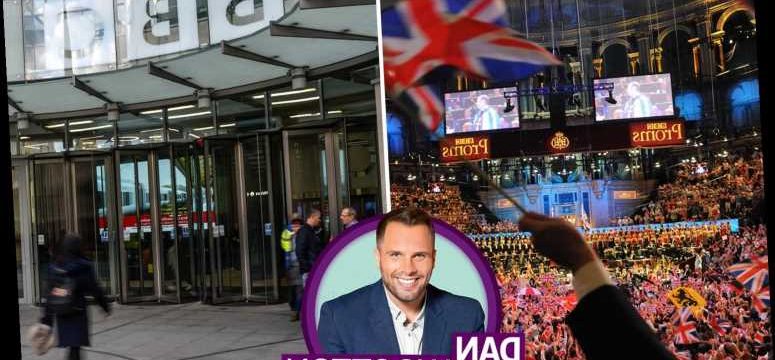WITH depressing predictability, the woke mob destroying the BBC bit by bit is coming for another great British tradition.
Rule, Britannia and Land of Hope and Glory are under threat of being dropped altogether from the Last Nights of the Proms.
According to the Sunday Times, this is because a 35-year-old Dane called Dalia Stasevska, backed by some BBC executives, wants to decolonise the event in the wake of the Black Lives Matter movement by reducing “patriotic elements”.
In fact, one insider told the newspaper this year the season is being described internally at the BBC as the “Black Lives Matter Proms”, proving that this is a corporation that now puts leftie social politics ahead of entertainment.
While the idiots who run the Beeb these days might think this is yet another contribution to the ongoing culture war against Britain’s rich and complex history, it will actually be another step towards them signing their own death warrant.
I’ve been to the Proms before and both songs are the absolute highlights: A rare moment in this modern age where the country unites to wave Union Jack flags and celebrate our patriotism, something most modern institutions seem terrified of because they might offend an irrelevant but vocal lobby group.
But just like statues of Winston Churchill and Queen Victoria, activists are determined to link these two brilliant songs with the ancient ills of the British Empire.
Wasfi Kani, the chief executive of Grange Park Opera, whose Indian parents came to the UK following the partition of the country in 1947, said yesterday: “I don’t listen to Land of Hope and Glory and say, ‘Thank God I’m british’ – it actually makes me feel more alienated. Britain raped India and that is what that song is celebrating.”
She is entitled to feel that way, but I counter that is an extremist view that alienates great swathes of the population, including immigrants, who actually view the song as a celebration of what’s great about being British.
Land of Hope and Glory was written in 1902. Rule, Britannia is based on a poem that was set to music in 1740.
Just like with our statues and monuments, the lyrics cannot and should not be judged by 2020 standards.
It’s obvious the words are not taken literally by normal folk, who simply see both tunes as a memorable and positive part of our shared culture that should be celebrated.
However, the BBC, which seems to hate Great Britain, will salivate at another opportunity to deride and eventually delete our heritage.
Shame on them!
Source: Read Full Article





